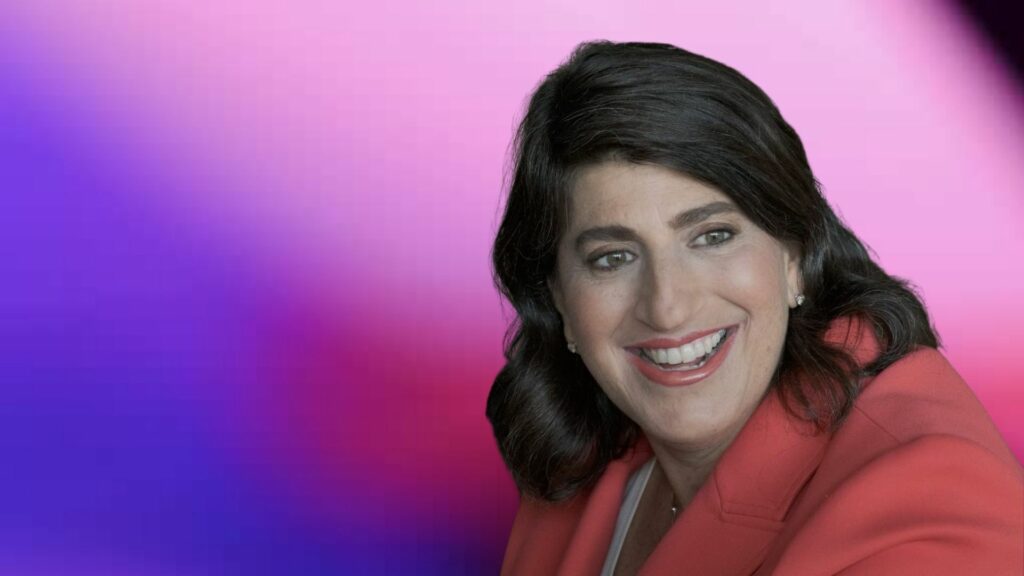How 3 business schools are tackling the gender parity problem

Gender balance benefits everyone, but not all business school experiences are created equally, and that’s reflected in student representation. Recently, The Financial Times released its 25th anniversary edition ranking of global MBAs. Considerations for a number of factors including average alumni salary, value for money, diversity, and sustainability were calculated based on the data collected over three years. Only ESCP Business School, which has campuses in France, Italy, Spain, the UK and Germany, achieved student gender parity, with just 10 schools among the 100 ranked having more women than men. No school achieved gender parity among faculty, although IE in Spain reached 49% women.
Attending business school is often the first step to greater leadership opportunities in the business world, and some schools are leading the charge to break barriers and make change for women. To explore the complexities of the persistent gender parity problem and highlight the successful methodologies of schools that are moving the needle in the right direction, MBAchic caught up with top officials from ESCP, Bayes, and UNC – three business schools making notable strides to close the gap.
What does women empowerment look like in business school in 2023 and beyond?
Recruiting more women to MBA programs is a universal issue that all business schools face. Laura Reyero, Associate Dean of ESCP’s MBA in International Management, says the timing of business school can be a barrier for many women who are juggling to take on other roles in their personal and professional lives.
“The age range of MBA students, around 30 years old, coincides with the age when many women start their families,” she says. “We know that when they have or are planning to have children, they are the ones who most often take on the role of raising them, especially when they are babies.” Keeping this reality in mind inspired ESCP to develop a hybrid model option for participants. “Though not 100% online, it is hybrid and provides flexibility in the timeframe for completion (participants can finish the program within three years) and in the courses that can be selected to take online,” says Reyero. This flexibility is something that significantly benefits women and that participants consistently express appreciation for.
Other schools looking to boost and maintain high female enrollment are recognizing the power of program flexibility, too. Wharton is the first of the elite “Magnificent 7” business schools to offer an online format for an Executive MBA degree. The 22-month EMBA launched in May 2023, with applications now open. Back in 2021, Wharton also made history as the first M7 school to surpass over 50% women in their MBA class of 2023.
Academic Director of the Bayes Global Women’s Leadership Program, Janina Steinmetz, says like other successful business schools working towards closing the gap, Bayes offers support for female MBA students by placing a strong emphasis on networks, financial assistance, and mentorship at all career stages.
“We award four scholarships per year that cover 50% of the tuition for students,” Steinmetz tells MBAchic. “With this financial help, we hope to enable students to start their MBA journey with much more financial security to help them focus on their studies. We also hope to provide access to education to students who otherwise might have struggled to afford an MBA.”
The main strategies Bayes leans into tend to center around events, networking and mentorship designed to make students feel supported as they cultivate their pipeline. In late April, the school is hosting an event centered around how women’s health affects their strategic career decisions.
“We specifically talk about fertility and menopause because these topics are often see as taboo or unprofessional to discuss in the workplace, but we know from studies that they can have a huge impact on how confident women feel to take on new roles, change careers, or apply for promotions, so we want to discuss these topics and talk about what employers can do to support women with these issues,” says Steinmetz.
Recognized by The Princeton Review as the #2 ranked business school in providing the “Greatest Resources for Women,” UNC Kenan-Flagler also knows a thing or two about bolstering female candidates through powerful conversation. Sarah Perez, UNC Associate Dean of MBA Programs and Executive Director of Admissions and Student Recruitment says UNC provides career and leadership assistance long after graduation. Hosting honest conversions, like a workshop earlier this year that addressed burnout and finding balance for women is also a key to their authentic success with female candidates.
“We aim to create space for women to have discussions that reflect on their experience, addressing barriers and obstacles they face and see others facing,” she says.
Before committing to bschool, reflect on these factors:
A lot of contemplation goes into a decision as consequential as business school. Because an important aspect of the business school experience is to make lifelong connections with other students, alumni, and professors, women need to prioritize selecting a school where they feel genuinely at home.
“The more comfortable women feel during the application process and the more they see themselves reflected in the school, the easier it will be to truly connect to the school community,” suggests Steinmetz.
In addition to matching a particular school’s curriculum and faculty expertise to individual goals, Perez says women should also consider what other opportunities exist to learn and thrive.
“What is the setting of the business school – college town or urban? What career support does the school offer? At UNC Kenan-Flagler, our career coaching commitment continues beyond graduation – it’s a lifetime relationship that students can tap into for support and advice at every stage of their post-MBA career,” Perez adds. Other important questions to consider:
- Will I have the opportunity to put into practice what I learn in class before I graduate, when it’s safe to make mistakes?
- Do extracurricular activities provide chances to hone my leadership skills as well as my overall personal and professional development?
- What is the size of alumni networks, and how do they support students in their journeys?
Another factor to consider? How will a program fit with each individual lifestyle.
“Let’s also remember that COVID has transformed the working environment, with 100% or partially remote managerial jobs becoming more and more common, where women are the main beneficiaries,” says Reyero. “Reconciliation measures are essential, such as those that provide greater flexibility like our hybrid MBA.”
Why these bschool leadership programs shine:
With just 10 of the 100 FT ranked business schools having more women than men, the absence of a fair playing field in even the most prestigious school settings can feel palpably frustrating. ESCP officials say one of the cornerstones of their approach (that resulted in a FT MBA ranking jump of a whopping 25 places over the past year) is that true diversity cannot thrive without inclusion, which is why they continue to do the thoughtful work that results in real gender parity. For any business school looking to better support their female students and staff, Reyero suggests communicating about diversity beyond business imperative. “We must strive to build a culture of inclusion, one that takes into account the specific needs of the individuals who make up our rich communities,” she says.
Steinmetz attributes the popularity of Bayes among female candidates to the combination of concrete financial help and its sustained effort to build a dynamic community of women. “The financial help will help students to worry less and focus on their studies especially initially, whereas the community aspects will help with internships, mentoring, and so on,” says Steinmetz. “So I think this combination is what really helps our students.”
Increasing the number of opportunities for female students to develop as leaders and enhance the support system for women means providing more platforms for women to connect. At UNC, Perez points out that a high percentage of their MBA student clubs are led by women, and female faculty, staff and alumni play important roles, too.
“Carolina Women in Business (CWIB) has been one of the largest and most dynamic MBA student-run clubs for many years,” says Perez. “CWIB provides women with opportunities for career development, community engagement and networking to enhance their MBA business school experience and prepare them for their post-MBA journey.”
What can be done to “speed up” achieving gender parity?
In order to close the gap, business school leaders say continued consistent efforts to support women and integrate new feedback is key to turning the tide.
“Unfortunately, change doesn’t happen overnight, but we’ve seen impressive improvements for women in many domains and sectors,” says Steinmetz. “So I think we are doing the right thing, we just have to continue to work hard for gender equality.”
Increasing the number of women enrolling in MBA programs is a goal that’s been on the horizon for most programs for over a decade. Perez says while gender parity is not a new issue and one that business schools have worked hard to address for many years, it is up to academic administrators to ensure that women view business school as a desirable and viable career path.
“Our 100 Women is an alumni-led movement that encourages and empowers future women business leaders,” says Perez. “At its core, 100 Women seeks to grow the number of women pursuing an MBA and support their journey, from mentoring prospective UNC Kenan-Flagler MBA students to providing guidance and advice throughout their career after graduation.”
While there’s a handful of reliable ways for business schools to promote parity, like increasing schedule flexibility or encouraging more women to enroll in mathematics or computer science courses, Reyero tells MBAchic that social change must coincide with academic pushes to truly promote parity.
“Preparation is the basis of growing and strengthening professional careers, and the MBA remains an important asset to prepare us for the careers we want. Let’s not give up this preparation, let’s not give up the struggle to achieve our goals,” Reyero continues. “An MBA is a challenge but not impossible if you meet the minimum requirements and have the desire to learn and succeed.”
While a lack of representation among Fortune 500 companies can be discouraging, school officials also encourage this imbalance to be fuel for change. “Let’s not wait for someone to change this situation. We have to change it ourselves, says Reyero. “We have to aspire to be there, to prepare ourselves, to forget about limits and glass ceilings. They exist, I won’t deny it, but together we have to break them.”
Join MBAchic to connect with women across MBA programs, industries and regions, to massively expand your network and build upon the resources you receive from your business school. To learn more, click here.

Photo from Priscilla Du Preez







